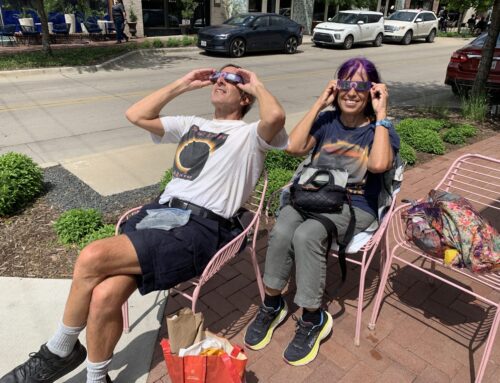When Gerry Clark and Myron Hudson bought Buddy’s Sporting Goods in 1994, the business already had nearly two decades on West Jefferson.
Buddy’s specializes in youth athletic uniforms, and Hudson had been a pee-wee football coach and customer of the store when its original owner, Roy Massey, died. Clark, a graduate of Grambling State University, took a buyout from the oil and gas company where he had worked for 18 years. The partners quickly decided to buy the business and the 1920 building at 123 W. Jefferson.
“If the real estate hadn’t been a part of it, we wouldn’t have bought it,” Clark says.
In those pre-Internet days of the mid-1990s, they had one big competitor, a sporting goods store in Desoto. A couple of years after buying Buddy’s on Jefferson, Clark and Hudson opened a second Buddy’s in Duncanville, cornering the market on custom team uniforms in Oak Cliff and the southern suburbs and defeating their main competitor.
Things have changed. Buddy’s now competes with every sporting goods retailer the world over, via the Internet.
The partners bought Buddy’s during the last of the glory days for small retailers.
[quote align=”right” color=”#000000″]“If the real estate hadn’t been a part of it, we wouldn’t have bought it,” [/quote]
Consider the 100 block of West Jefferson as it stood in 1994. On the corner at Beckley, there was another sporting goods store, Smitty’s, which specialized in gear for camping, fishing and hunting. Next to that, where La Hechizera tortas is now, was a barbecue place. Where El Rincon Tapatio restaurant is now was a TV repair shop. Next to that, where there is a dollar store now, was a hosiery shop. Yes, a 3,000-square-foot store exclusively selling pantyhose. That’s hard to fathom in the era when an Amazon drone could deliver hot-pink tights to your door within hours. Outdoor sports mega retailer Bass Pro Shops is a weekend destination. And TVs are made to last and then be replaced.
None of those old businesses seem viable now, but Buddy’s remains.
Buddy’s does enjoy some generational loyalty. Parents and grandparents who bought uniforms, tape, helmets and socks there as kids now bring their own children’s team business to Buddy’s. But Clark says it also can be hard to keep up with the generational turnover. For every peewee football team that ages up to high school, a market that Buddy’s does not have a hold on, a new peewee team of 5-to-7 year olds is starting. Clark and Hudson have to seek those parents’ business before they lose it to the web.
“Today’s generation is so Internet focused,” Clark says. “They don’t even think about us.”
The shop caters to team sports — basketball, baseball, volleyball and soccer — but football is the moneymaker. It costs about $140 to outfit a player with a helmet, pads, jersey, pants and socks. Nowadays, most kids also want a custom-printed hand towel like the pros, and parents often order matching game-day T-shirts, Clark says.
Custom T-shirts also account for a good chunk of business. They’re most commonly printed for family reunions and school and corporate events. In a throwback to T-shirt shops of the ’70s, Buddy’s can still make custom tees with letters pressed on at the counter while you wait. They also sell letterman jackets and do custom embroidery.
In Buddy’s heyday, there were as many as seven employees at the Jefferson store. More recently they’ve downsized to one employee besides Clark. Hudson helms the Duncanville store, which also has one employee.
The years go in seasons: Basketball, volleyball, soccer, baseball, football. There are peaks and valleys, Clark says. There are slow times when he wonders why he is doing this, he says. Then a second-generation customer will come in to suit up his kid for the first game.
“It makes you feel proud,” he says.





